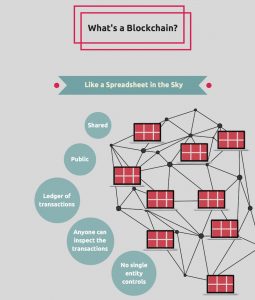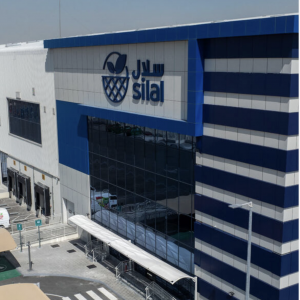Darryn Pollock – Forbes 30 August 2019
 Having already seen much success in food traceability with IBM’s Food Trust, blockchain-based supply chains in the food and produce sector is increasing in adoption rapidly. News has now emerged that Migros, Switzerland’s largest supermarket chain, has instituted a blockchain food tracking system with the help of TE-Food.
Having already seen much success in food traceability with IBM’s Food Trust, blockchain-based supply chains in the food and produce sector is increasing in adoption rapidly. News has now emerged that Migros, Switzerland’s largest supermarket chain, has instituted a blockchain food tracking system with the help of TE-Food.
TE-Foods calls itself a ‘farm-to-table’ food traceability blockchain solution. Its partnership with Migros is intended to help produce giant become a value-adding partner to its suppliers and stakeholders.
In the release, Migros says this move towards blockchain tech is no longer just a marketing gimmick. Instead, they have identified the potential that blockchain has in offering this added value to their customers, especially in today’s world where food sustainability, ethics, and knowledge are so important.
When it comes to enterprise adoption of blockchain technology, there are a few sectors that are leading the way. One of these is undoubtedly supply chain for track and trace of food produce. Migros may be the biggest chain in Switzerland, but it is dwarfed by other food-producing pioneers who have adopted the blockchain.
Walmart is a prominent investor in blockchain food track and trace, while Nestle is even looking to take the next step with its supply chain by utilizing public blockchain solutions. Still, it is a sign of the times that, with a path having been laid by the forerunners, other organizations are starting to see the benefits and drive a more holistic adoption of the technology.
Beyond marketing
It is clear from how the press release from Migros is worded that the company is not interested in the hype which blockchain has been famed to bring. Coincidently, that hype bubble has all but popped, and many enterprises entering the space now are far more interested in tangible results.
They have identified that blockchain can aid in essential areas in the supply chain, such as easier product recalls and a general sharpening up of the entire supply chain management process.
Part of this optimized supply chain solution that blockchain can bring will allow Migros quicker distribution and reduced food waste, which is also part of the European Food Safety Authority’s initiatives for the next years.
A much-needed disruption
This decision by Migros, at this time in the technology’s evolution, is proof that the arena of supply chain management has been baying for disruption for some time now, but has never had an option to change.
Blockchain has quickly molded into that disruptive alternative and supply chain management remains one of the most viable areas for blockchain to be integrated at an enterprise level. Further proof of this can be seen in the general area of focus of a company like IBM, which has become synonymous with blockchain solutions for enterprises.
IBM recently released another initiative based on supply chain management, but with a more niche focus, supplier supply chain. IBM’s Trust Your Supplier project, which already boasts Anheuser-Busch InBev, GlaxoSmithKline, Lenovo, Nokia, Schneider Electric, and Vodafone as partners, is intending to streamline the onboarding of suppliers.
However, this is only possible through the groundwork which has been done by other projects based on food supply chain, also through IBM and its Food Trust. Food Trust also began with a core of significant enterprises members but has grown and expanded to set a leading light in the emerging space for the likes of Migros to follow.
The killer app?
Of course, there is still a lot of room for growth in the supply chain side of things when it comes to blockchain integration. Most of the work being done is quite siloed and exclusive, even with the Food Trust consortium and others. Public blockchain is just starting to be explored at an enterprise level, and interoperability remains a pressing concern.
However, in terms of a killer application for blockchain; the supply chain seems custom made for it – especially when it comes to food tracking and sourcing. The desire for transparency and immutability from farm to table is an added service that companies can offer while also adding efficiency to their supply chain with this new technology.



